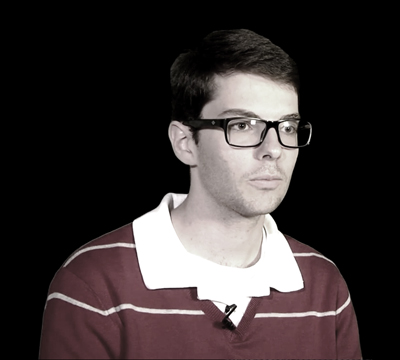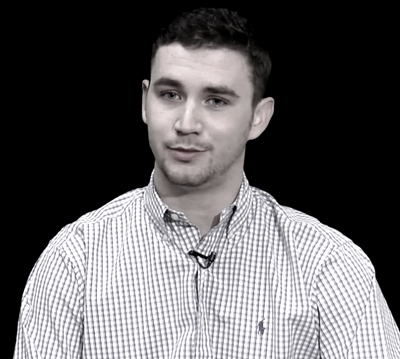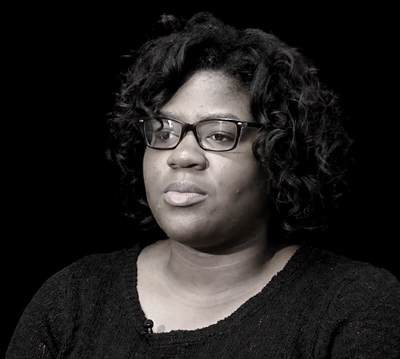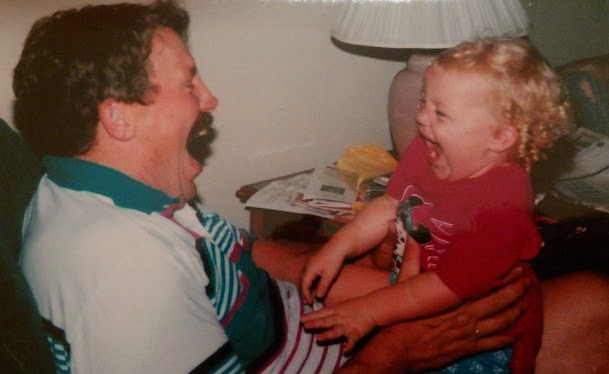It wasn’t until two years after the death of her father that Stricklen began attending counseling services at NKU.
However, once she did start the classes, she found them extremely helpful because she was not forced to say anything or to “be strong.”
Barresi said students visit regularly for issues surrounding loss.
These are common issues that bring people to therapy, she said.
“When folks come in because of a death, I think they’re generally wanting to process that. To talk about it,” Barresi said.
According to the 2009 census, there were 18.4 million students enrolled in American colleges. The Students of Ailing Mothers and Fathers report states that out of those numbers there are more than 4.5 million college students who are grieving.
Unique to young adults
Setting up support group meetings is another option for young adults dealing with loss. However, both the group meetings and regularly attending counseling sessions can be difficult, specifically for young adults.
“Young adults are all very busy in their lives and they’re not busy in the same way,” McCutchen said. “They have part-time jobs, full-time jobs. If they’re college students they’re going to class. It can just be very difficult for them to attend meetings on a regular basis.”
Parents often call out of concern for their son or daughter, said McCutchen. However, when you speak to the son or daughter a gap often develops, she added. Parents are not going to lead their sons and daughters to meetings the same way they may have in high school or younger.
“You never know if it’s the parent thinking they need [help] or if the young adult is thinking that ‘No, I’m doing okay,’” McCutchen said.
Similar reactions
There is a commonality amongst those grieving at all ages, especially as an adult or young adult said Barressi. However, a person’s relationship with the deceased can obviously have different impacts.
“The death of friends their own age is the big eye opener from my perspective. It’s like ‘this could happen,’” said James Ellis, bereavement care coordinator at Saint Elizabeth and professor of HSR 314 (Death, Dying and Grief) at NKU.
Ellis said in his discussions with young adults they tend to mention that college is a time where they are supposed to be taking charge of their life. When a loved one dies it challenges that.
“How do I stand on my own and get through this grief because it isn’t normal?” Ellis said. “Seeking help would challenge that ‘standing on my own thing.’ It means I need help. It means I’m weak, which it doesn’t, but that’s the misconception.”
Ellis added that loss, especially that of a parent, is hard because it changes students’ preconceived ideals about their future lives.
“Parent loss is really a core shaker because parents are supposed to live forever,” Ellis said.
Barressi agrees and said college-aged adults are still developing and figuring out their identity.
McCutchen said young adults can often compare themselves to their parents or guardians in order to help establish the person they want to become. When that opportunity is lost they can struggle setting up relationships in the future.
Refusing to deal with issues surrounding loss can have long lasting effects, according to Barressi. It can get in the way of completing your daily routine and even begin to disrupt your relationships. You may begin to have a preoccupation with the deceased that doesn’t subside.
Extreme anger or bitterness might persist and you could potentially begin to see life as empty or meaningless. Barresi added that these thoughts can often lead to one becoming suicidal.
No one way to recover
“People can think that there’s this one way that you’re supposed to grieve and the reality is that no two people react exactly alike, “ Barressi said. “There are a variety of feelings that people feel and that’s actually pretty normal.”
Shock, numbness and a sense of disbelief can be the most immediate and common response to a death, according to Barressi.
Stricklen had that reaction after suffering another loss, this time her best friend Brooklyn in January.
“I just kind of was in shock. I never thought something like this would have happened to her and it was so sudden,” Stricklen said.
Stricklen put together pictures of her group of friends the day before the funeral so that Brooklyn’s family didn’t have to worry about it. This was an act that helped her immediately.
“We made posters and stuff with pictures of all of us since we were five-years-old,” Stricklen said.
After the loss of a loved one some people can go into to-do mode, according to Barressi. They take on the work of getting through what they need to and afterwards give themselves permission to grieve or cry.
McCutchen said people who lose loved ones even question if they are weird because they have certain thoughts or feelings — this is where group therapy can be helpful. At those meetings, McCutchen said you can hear others talk about similar experiences you might be going through.
Indications that someone is struggling with grief and should consider counseling would be to first determine if you are having a hard time performing daily activities. Also, if you are feeling numb or disconnected from others. Another sign would be if you have been struggling with trust since the loss or blaming yourself. Finally, if you are beginning to feel that life isn’t worth living.
All of those situations and feelings, according to the professionals, can be aided in some way by the counseling — by simply talking to other people about your experience.
“It’s a cliché,” Stricklen said. “But talking really helped.”
Group vs. individual support options: Who should I talk to?
“I think for some people a group can be more exposing, but the benefits of a group can be that you cannot feel as alone,” Barressi said. “It’s an opportunity to get support, but also to give it too.”
In a support group there can be people in various stages of their grief, Barressi added. Longer term members can see how far they’ve come by hearing details of other members experiences. Those struggling can see how others got through the grief.
“Also, I think groups help give permission to people to grieve because they see other people are and that it’s a natural process,” Barressi said.
McCutchen said that groups can be great for those who tend to be quiet. Usually the first rule of a group is that you don’t have to talk. For those who have a hard time talking about their feelings and opening up this could relax them and at some point they can feel comfortable enough to share their experiences, she explained.
However, Barressi noted that some people may not be ready for this yet in their process and should then consider individual counseling. A lot of people want to first be able to process their grief in a one-on-one, more private setting, Barressi commented.






